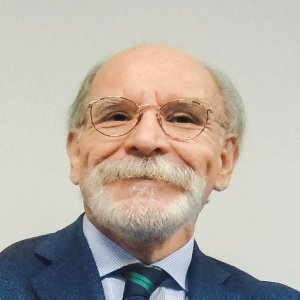Scientific Network Addresses Industry Problems

STORY INLINE POST
In the complex and ever-changing healthcare environment, the secret to growth is knowledge, says Juan Padierna, Director General of Laboratorios de Especialidades Inmunológicas (LEI). LEI, which began as a clinical laboratory, capitalized on a solid knowledge base to develop a wide range of capabilities, not only for clinical analysis, training, quality control and microbiology, but also for research and development of innovative medicines
“LEI was founded on a commitment to knowledge and we stay up-to-date with the latest advances in all fields related to healthcare,” says Padierna. “We offer our clients access to a broad database of knowledge through the many different experts who work at LEI. We have created a strong and comprehensive network of scientists to solve industry problems.”
LEI began operations as a clinical laboratory for HIV and AIDS-related tests, including immune system evaluation, but the company has evolved. “We began studying the potency of thymosin, an immunostimulant protein, through Rosetta modeling. This project allowed us to get a foot in the biotechnology field, after which more projects from national and international entities materialized,” says Padierna. Through this work, the company identified a clear need in the local pharmaceutical market. “At the time, most medications were small molecules,” says Padierna, pointing to the need for developing capabilities to address biotechnological and biosimilar drugs. For that reason, the company expanded first into quality control for biotechnological products. “We decided to invest in cutting-edge technology, including 3D cell cultures and quality control of cells that produce biomolecules, as well as stem cells. We diversified our portfolio of services to avoid relying on a single line of work.”
LEI gradually incorporated technology and other capabilities to address the needs of the industry and today the company is also an authorized third party for medical devices with capabilities to perform biocompatibility, cytotoxicity, sensitization, safety, genotoxicity and biological reactivity tests, among many others.
The company is now entering the biosimilar field, for which it is only waiting for COFEPRIS’ certification. Current regulations require biosimilars to be as close as possible to the innovative drug. Copying them exactly would require using the exact same organism, which is often not possible. In these cases, regulations establish a degree of similarity to the original product that the biosimilar must achieve to avoid immunogenicity. “We use high-performance liquid chromatography-tandem mass spectrometry (HPLC-MS) to measure the molecules we synthetized and ensure they have a similar primary structure to the patented medicine,” Padierna says. “Next, it is necessary to prove that the biosimilar’s 3D shape is similar to the patented medicine, for which we acquired circular dichroism equipment to measure whether both molecules behaved in the same fashion under circularly polarized light.” LEI then performs cell cultures of the biosimilar to measure potency in comparison to the patented medication followed by the use of Biacore equipment to measure specificity and affinity in molecular interactions. This MX$9 million equipment was partially financed with CONACYT funding.
“Our company has a comprehensive vision that addresses every problem a client might face,” says Padierna. This required a large investment in technology for the acquisition of capillary electrophoresis, flow cytometry and highperformance liquid chromatography (HPLC). In early 2018, the company published research on the gut microbiota of mice, which has many different functions in the body, such as improving digestion, stimulating the immune response and protecting against pathogens. In a paper published by Immunology Letters, the company reported its results on the study of the effect of a bacteria-specific immune response in mice on recolonization by the same bacteria to determine the role that systemic immune response has in intestine bacterial composition.
Padierna credits the company’s growth to its position as a knowledge center. For him, the acquisition of technology was secondary to the acquisition of these minds, which when brought together resulted in its multiple capabilities.






















